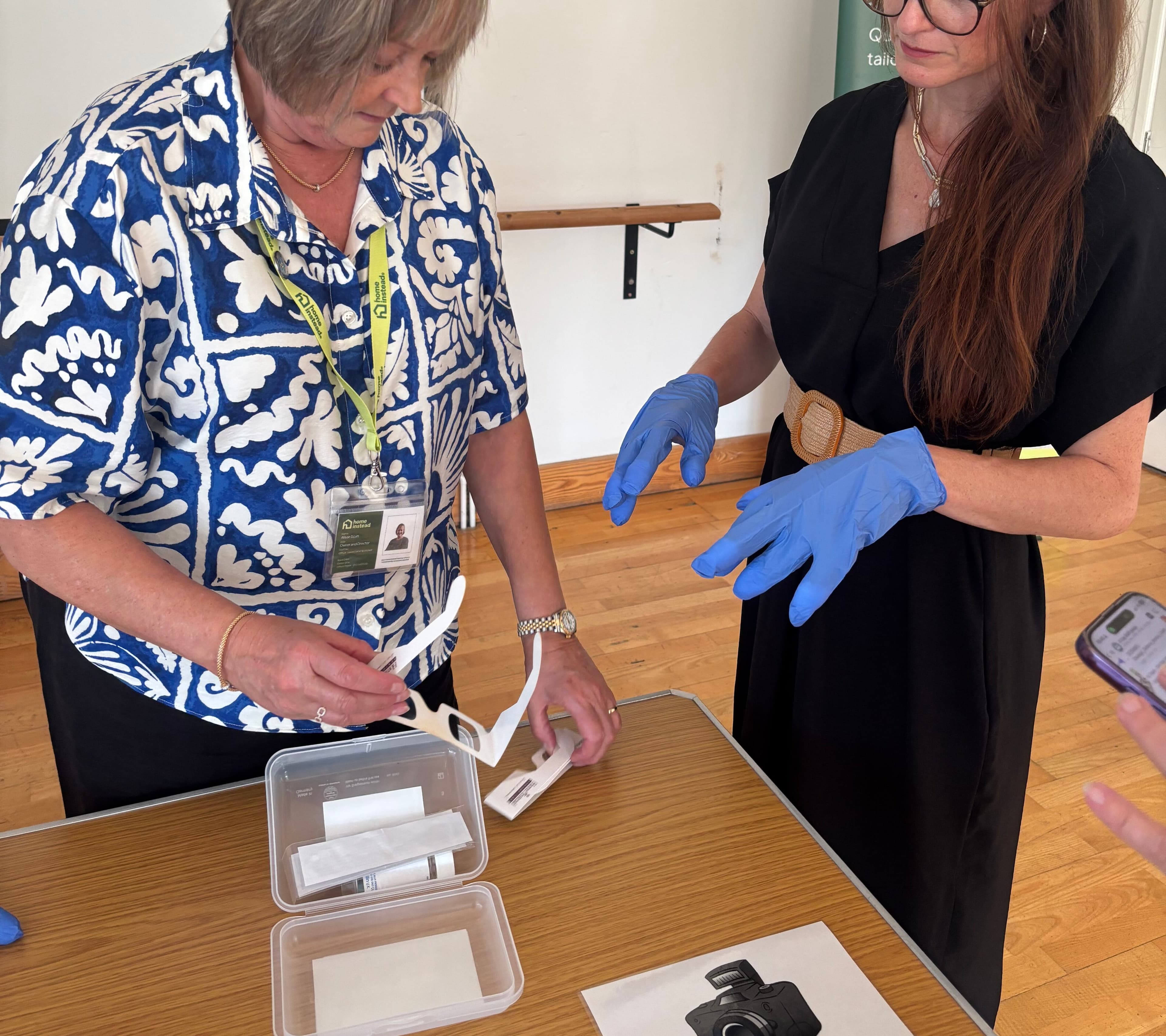Our 'Spot the Signs' event proves a resounding success

We are delighted to share the success of our recent 'Spot the Signs' event, held on Wednesday 18th June at Southdown Sports Club in Lewes.
The event addressed a challenge that touches nearly every family: understanding when mum and dad might need extra care whilst maintaining their dignity and independence. Our presentation focused on the crucial message that early detection makes all the difference, helping families identify subtle warning signs before they become serious problems.
Members of the community engaged thoughtfully as we explored the common indicators that additional support may be needed, from memory changes and personal hygiene concerns to medication management issues and safety worries. What resonated most with attendees was our emphasis that these “little signs” are often dismissed as natural ageing, when in reality they can be early indicators that more help is required.
Learning from experience
During the discussion, we shared a case study from our work – a client who was experiencing short-term memory loss and finding it harder to manage household tasks and personal care. Rather than waiting for a crisis, the family reached out early. We worked together to create a support plan that addressed the specific areas where help was needed.
The outcome was positive with the client regaining confidence, they started eating more regularly, and even returned to some community activities they’d stopped attending. Meanwhile, the family could spend time together without constantly worrying about safety and care needs.
The conversations that matter
Much of the evening focused on how to approach these sensitive conversations. It’s never easy to suggest that someone might need help, especially when that someone is your parent. We talked about framing concerns around your own feelings rather than making direct accusations, keeping discussions calm and collaborative, and involving other family members where appropriate.
Attendees shared their own experiences and concerns, engaged in a dementia simulation experience and discussed concerns openly within a safe space. Some were just beginning to notice changes, others were further along in their care journey. The common thread was relief at being able to discuss these challenges with others who understood.
Steps forward
We covered practical steps families can take: keeping notes about specific incidents, talking to siblings and other relatives, researching reliable sources of information, and sorting out important legal documents before they’re urgently needed.
We also emphasised something that’s often overlooked – looking after yourself during this process. Watching a parent’s capabilities decline can be emotionally challenging. It’s important to acknowledge those feelings and seek support when needed.
What we learned
The evening reinforced something we see regularly in our work: families often wait too long before seeking help. Sometimes it’s because they don’t recognise the signs, other times it’s because they’re unsure how to start the conversation. By the time they reach out, what could have been a gradual transition has become a crisis.
Early intervention really does make a difference. It allows for more choice, better planning, and often better outcomes for everyone involved.
Many thanks…
To those in the community who attended (among others) including:
- Anthony from Barchester – Lydfords Care Home
- Jo Crossman from The Mobile Hygienist
- Julie from The Foundry Healthcare Lewes
Get in touch
For those who attended, we hope the evening provided useful insights and perhaps some reassurance that they’re not alone in facing these challenges.
If you’re noticing changes in a loved one and aren’t sure what to do about it, or if you’d simply like to have a conversation about what support might look like, we’re here to help. Sometimes talking through the options with someone who understands the landscape can clarify the next steps.
If you’d like to discuss your family’s situation or learn more about support options, please get in touch. We’re happy to have an informal conversation about what might be helpful.
